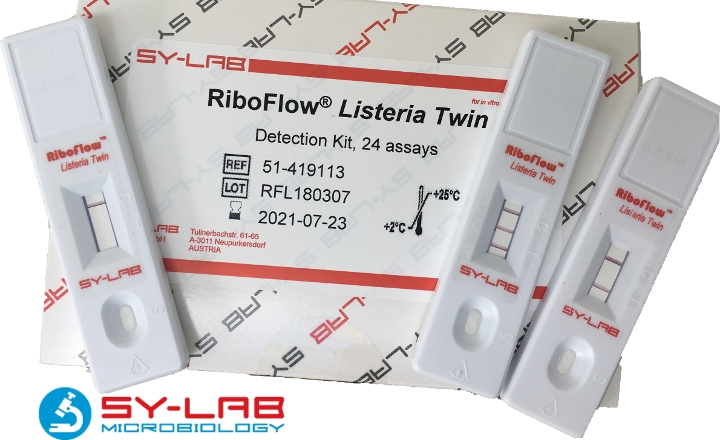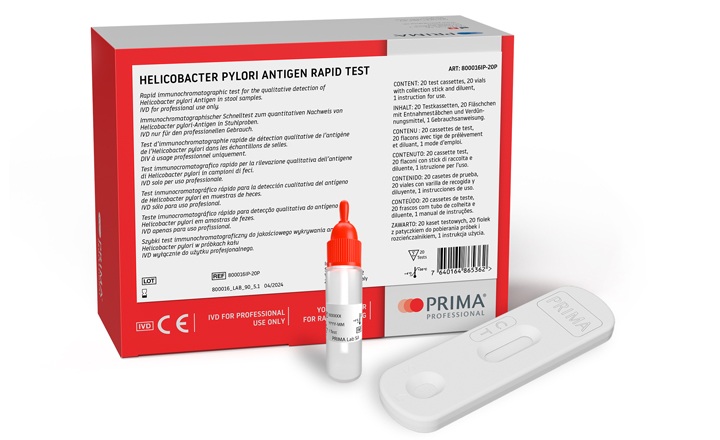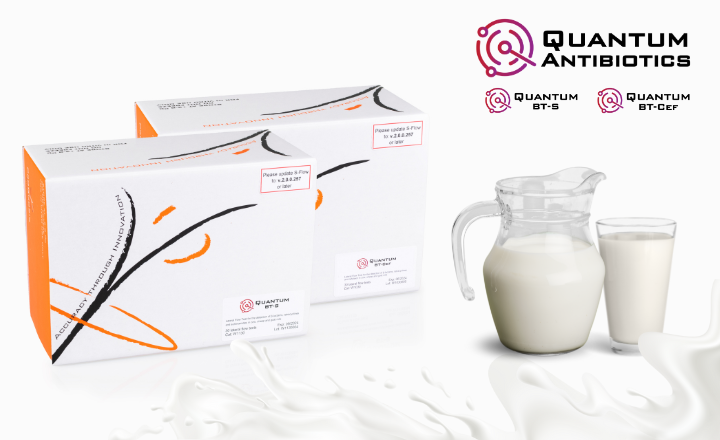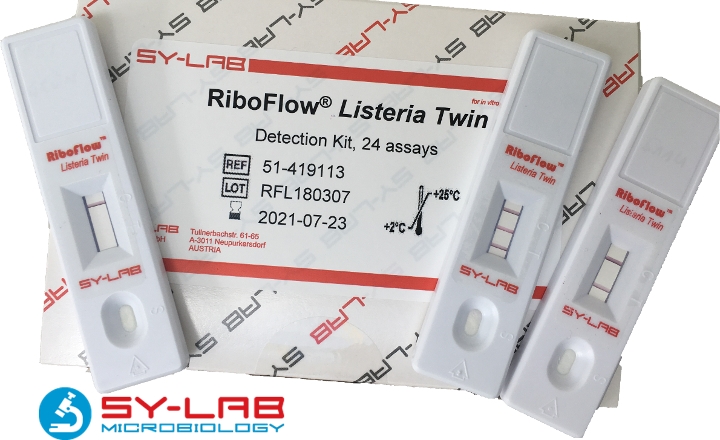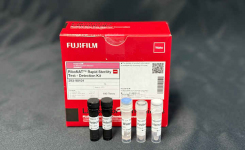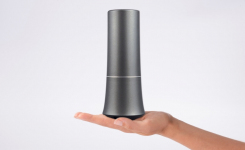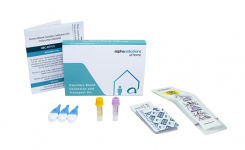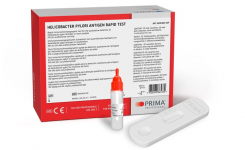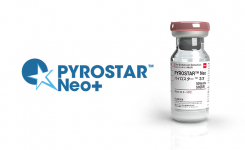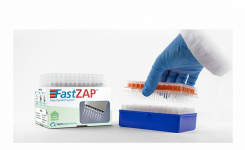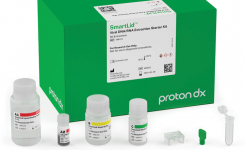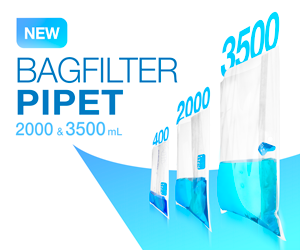Sentinel Diagnostics Easy-Card H. pylori test - a quick, convenient method for detecting infection
It is estimated that Helicobacter pylori (H. pylori) may be found in the stomachs of up to 40% of the UK population. Whilst many infected individuals remain asymptomatic, around 15% of people with H. pylori go on to develop ulcers in the stomach or duodenum which can cause indigestion, gastritis, bleeding, and, if untreated, may perforate the intestinal wall and require emergency surgery. H. pylori infection may cause up to 90% of duodenal ulcers and 80% of gastric ulcers. Those individuals with H. pylori colonisations are also at a 1-2% increased risk of developing gastric cancer.
National guidelines recommend testing for H. pylori in patients presenting with uncomplicated dyspepsia; considered at high risk of H. pylori infection; prior to initiation of non-steroidal anti-inflammatory drugs in patients with a prior history of ulcers or gastric bleeds; and patients with unexplained iron-deficiency anaemia after exclusion of malignancy by endoscopic investigations. This ‘test to treat’ strategy aims to confirm the presence of H. pylori prior to commencing eradication treatment, intended to reduce the risk of further gastric disease.
To survive in the hostile acidic environment of the stomach H. pylori produces vast amounts of urease. This enzyme catalyses the hydrolysis of urea to give ammonia which serves to neutralise the acid immediately surrounding the bacteria. It also uses its flagella to burrow through the mucous layer, moving along a pH gradient away from the gastric acid to colonise the underlying epithelium. The ammonia produced is toxic to epithelial cells and alongside other proteases and toxins produced by H. pylori can cause inflammation that can result in ulcers.
There are several non-invasive tests for the detection of H. Pylori infection - blood antibodies, stool antigens, and Urea Breath test (UBT). Of these, the stool antigen and UBT are the preferred methods for identifying current infection. This is because the blood antibodies test cannot differentiate between active and past infections.
The UBT method requires patient consumption of a prescription preparation of 13C labelled urea, which in the presence of H. pylori-generated urease, is metabolised to produce ammonia and 13C labelled carbon dioxide. The latter is then exhaled by the patient, and the breath sample measured using an isotope analyser to detect 13C.
The stool antigen test, in contrast, has no analyser requirement and represents a cost-effective alternative with little to no compromise on sensitivity and specificity. The Sentinel Diagnostics Easy-Card H. pylori test is designed for rapid detection of H. pylori antigen in stool samples and gives an answer in just 10 minutes. Sample processing is quick and simple using the dipstick sampling device and pre-filled buffer tube. The Easy-Card’s lateral flow technology means it is clear and easy to read.
For further information, click here or contact Alpha Laboratories using the green "Request Information" button below.




